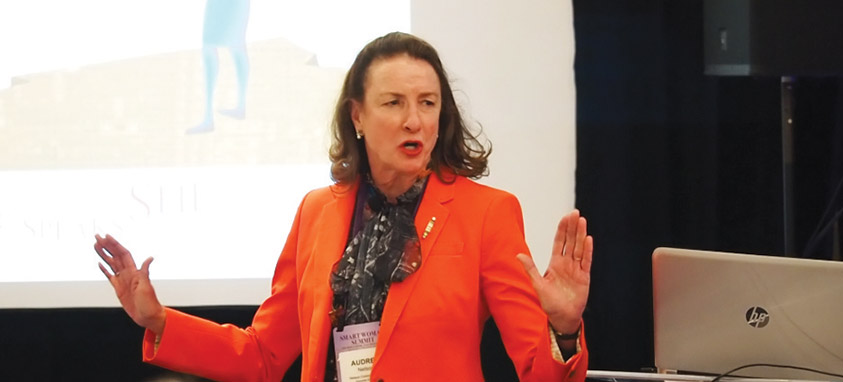Let’s face it, not every employee is easy to work with every day. Our job as leaders is to find ways to not only tolerate, but also motivate and coach every person on our teams to achieve at the highest level possible. Or at least to protect the rest of the staff from toxic attitudes.
At our Smart Woman Summit in Denver in April, we were lucky enough to share words of wisdom from Audrey Nelson, author of You Don’t Say: Navigating Nonverbal Communication Between the Sexes. She shared techniques for dealing with difficult people that focused on staying detached, but plugged in. She called for monitoring both the behavior of co-workers after interventions and your own feelings. This allows you to take responsibility for your reactions and adjust your approach as you go.
This got me to thinking about the challenges lots of event planners face as they deal with fellow employees, vendors and crowds of people every day, so I did some research. I found five personality types that require careful handling to avoid collateral damage. See if you recognize any of these and test out the communication tricks for each one.
The Victim
If the conversation always reverts back to how unfairly this person has been treated, that is a sign that you are dealing with a victim.
The secret is to recognize that they legitimately feel this way, even if in reality they are no more targeted than anyone else. Empathize with them without reinforcing their sense of helplessness. Encourage them to take responsibility for changing the situation and don’t get sucked into the downward verbal spiral, which can eat up time and make things even worse.
The Gossip
Whether you are the recipient of rumors or the victim of someone talking behind your back, gossip is painful and counter-productive. Often these people are covering for their own insecurity by bad-mouthing others.
Your job is to refrain from encouraging this damaging behavior. First, try not to take whatever is said about you personally. Gossip says more about the person spreading the stories than the subject of the ridicule. If the person is trying to make you a confidant of the inappropriate conversation, then this is the time to model professional behavior, say that you are not comfortable with the topic and excuse yourself.
The Blamer
Constantly pointing the finger at someone else is different than analyzing an event to look for lessons learned. The goal of the blamer is often to shift attention to someone else. This is a problem because it misses an opportunity for taking responsibility and growing.
When you see chronic finger-pointing, the best way to ground the conversation is to focus on data and facts. If the facts show that you shoulder some of the responsibility, own up to that, but set boundaries. Focus on solutions and refuse to get into a debate about who did what. That only makes the person defensive and can lead to future confrontations.
The Perfectionist
This behavior is often labeled as detail-oriented and can be helpful at times. When the criticism goes beyond maintaining high standards and strays into obsession, however, perfectionism can be demoralizing for those who are the target of the constant complaining.
Again, the key to coping with this behavior is to try not to take it personally. Sometimes, you just have to let go of control if what they are asking for is legitimate.
The Drama Major
These people are emotionally reactive and, according to one therapist, have the traits of histrionic personality disorder even if they don’t have the actual disorder. In a cry for attention, these people can be extreme and disruptive.
Defusing the situation with people who have these tendencies can require being generous with praise before delivering any critiques. You also need to be clear with them about the impact they are having on office productivity as they may not see the collateral damage of their antics. Most importantly, your role is to remain calm when they are in a manic state. I know this can be easier said than done, but realize that you probably can’t change them, so you need to protect yourself and the rest of your team.
Nelson assured attendees that the right tactics for disarming manipulation, sabotage and bullying games in the office can go a long way toward making the work day more productive for everyone.
Marin Bright is CEO and founder of Bright Business Media, LLC, which publishes Smart Meetings magazine. She was honored during the 2015 Folio’s Top Women in Media Awards as a corporate visionary.




